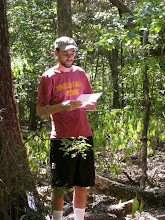A Review: What We Carry
In all artistic mediums, we oftentimes look for honest expressions of the joy and suffering of the human condition that transcend their subject matter. In her second book of poems, What We Carry, Dorianne Laux does this, and manages to capture the underlying essence of seemingly mundane suburbia, fading memory and innocuous moments in time, among others. Her work is not complex. In fact, her use of language is beautifully simple, allowing novice readers as well as seasoned veterans to delve into the meat of her poetry and enjoy it without having to put forth an amount of effort that would distract from the work. Laux does a lot of the work for us in this wonderfully artistic collection of poems.
A pervasive motif of What We Carry is an overwhelming tone of vulnerability. Laux is not afraid to thrust herself onto the page, bearing all, for everyone to see. The first poem, “Late October,” sets a stunningly honest tone for the rest of the collection with its revealing epiphany:
forty-one years old, standing on a slab
of cold concrete, a broom handle slipping
from my hands, my breasts bare, my hair
on end, afraid of what I might do next.
The diction in this excerpt is exemplary of Laux’s instinctive connection to the subject matter. In addition to “Late October,” this connection works effectively in “After Twelve Days of Rain,” “What I Wouldn’t Do,” “Finding What’s Lost” and “2 AM.” In these poems, Laux freezes herself in moments of vulnerability and forces honest self-reflection onto the page. In doing this, she allows readers to identify with the subject matter and prods us to consider the implications of what she is saying. As one might expect, these self-reflections are often dark and almost too troubling to impose on one’s own life, but Laux is relentless, addressing some of the most striking existential dilemmas that infiltrate the human condition with simple lines, like these from “After Twelve Days of Rain”: “I finally believed I was alone, felt it/in my actual, visceral heart, heard it echo/like a thin bell.”
This brutally honest confession is not uncommon in What We Carry, as Laux explores not only her surroundings but also herself and her place in the grand scheme of the world. The uncertainty that this exploration uncovers is heightened by Laux’s brilliant use of contrast. She commonly contrasts ugliness with beauty and primal instinct with elevated consciousness. On many occasions, this divergence of theme, accompanied by contrasting diction, weaves seamlessly in and out of concrete description, figuration and grandiose abstraction. This lyrical movement in the diction, figuration and subject matter all create tension while pitting dominant themes against one another – loss, anxiety and monotony against transcendence, control and imagination. Nowhere is this contrast more evident than in “If This Is Paradise,” where Laux presents a presupposed vision of subconscious paradise, and then poses a series of questions that flip the assumption on its head:
...If this is paradise
and all we have to do is be born and live
and die, why pick up the stick at all?
Why see the wheel in the rock?
Why bring back from the burning fields
a bowl full of fire and pretend that it’s magic?
Laux does not answer these questions. In fact, she refuses to, claiming that “Maybe it’s what we don’t say/that saves us.” (“Enough Music”), but the fact that she questions assumptions is indicative of her attitude throughout entire collection. Laux challenges her own perceptions, and in turn, seems to prod us to question the status quo of our own lives.
The aforementioned lyrical movement results in numerous, poignant epiphanies that connected and lingered with me long after setting the book aside. The poems that accomplish this most effectively (“Dust,” “For My Daughter Who Loves Animals,” “After Twelve Days of Rain,” “Finding What’s Lost,” “Graffiti” and “Landrum’s Diner, Reno”) are certainly the most memorable in the collection and are shining examples of Laux’s artistic vision. A few poems (“Singing Back the World,” “The Ebony Chickering” and “Sunday Radio” ) fall short of the remarkable standards she sets, as they seem to float endlessly in abstraction and non-relatable description and never find their way back down to the firm roots of her best work. But forgiving these minor and hardly debilitating setbacks, Laux has assembled a brilliant collection of poetry that reminds and sometimes enlightens us about What We Carry.
